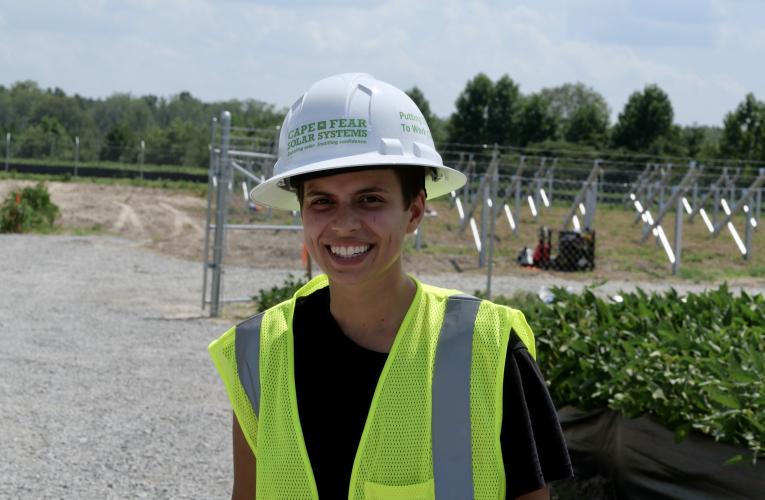Sophia Palia, a Master of Environmental Management student, spent her summer as a Communications Consultant at The Hive Fund for Climate & Gender Justice.
Each year, Nicholas School of the Environment students complete internships with organizations around the world. These internships provide valuable opportunities to gain career-related experience and build a professional network.
Duke Environment recently caught up with Sophia to learn more about her experience.
What did you do at your internship and how did you use the skills you learned at the Nicholas School?
This summer, I worked as a communications consultant for The Hive Fund for Climate & Gender Justice, helping support historically underfunded grassroots organizations that are playing impactful roles in the equitable transition to clean energy in the South. Throughout my internship, I helped develop articles, videos, photos, graphic design projects and maps that helped bring attention to the important — but often overlooked — climate work being done by Hive Fund grantee partners. I was also able to support the Hive Fund’s annual report and grant-writing efforts, further honing my ability to communicate to climate funders about the value of philanthropic investment in these grassroots groups. During this experience, I had to apply many of the skills I’ve learned while pursuing my certificate in Community-Based Environmental Management (CBEM) to foster the trust that is essential in working with communities, especially as an outsider. I also drew upon my training in ArcGIS as well as my various experiences working collaboratively on environmental projects at the Nicholas School.
How did the Nicholas School help you during your internship search?
I developed my internship by reaching out to the co-director of the Hive Fund, Melanie Allen, who had come to speak to my CBEM Practicum class last spring. I found the Hive Fund’s work on intersecting environmental justice issues extremely interesting and asked about any potential opportunities in grant-writing or communications. While the Hive Fund does not have an internship program, I was able to work with them as a consultant and receive funding from the Career & Professional Development Center (CPDC). Dr. Elizabeth Shapiro-Garza was instrumental in facilitating the connection to the Hive Fund and supporting my application for Duke funds through a letter of recommendation.
How will this experience help you in your career?
This experience enabled me to further develop my communication and story-telling skills in the environmental justice space. I was also able to deepen my understanding of equity-based philanthropy, community-driven initiatives and fundraising. Additionally, I gained a network of professionals that I can reach out to throughout my career, from the incredible Hive Fund team to leaders of grantee partner organizations. After this internship, I feel more equipped and focused heading out into the workforce after graduation.
